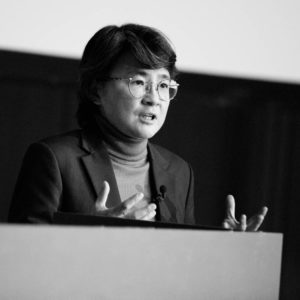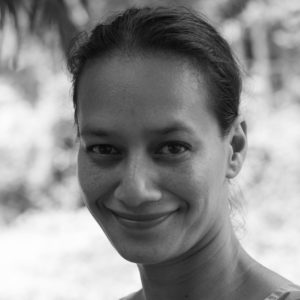Brendan Howe (Ewha Womans University, South Korea), Haruko Satoh (Osaka University, Japan), and Krisna Uk (Association for Asian Studies) will participate in the Featured Discussion “IAFOR’s Collaborative Efforts: AAS and the IAFOR Research Centre” at The 9th Asian Conference on Education & International Development (ACEID2023).
To participate in ACEID2023 as an audience member, please register for the conference.
This plenary will also be available for IAFOR Members to view online. To find out more, please visit the IAFOR Membership page.
Abstract
IAFOR’s Collaborative Efforts: AAS and the IAFOR Research Centre
The objective of The Asian Conference on Education & International Development (ACEID) is to showcase the importance of education as an integral (and indispensable) component of international development. In higher education, where the resource-rich Global North dominates in research capacity, as well as in shaping mainstream discourse, many institutions in the Global South still need considerable capacity building in order to make their voice count.
In this featured discussion, we invite Krisna Uk, Director of Special Initiatives at the Association of Asian Studies, who is leading the South and Southeast Asia initiative to “Cultivate the Humanities and Social Sciences in Under-represented Scholars in Asia”, to discuss this major region-wide, collaborative undertaking. She will be joined by Brendan Howe, Dean of the Graduate School of International Studies at Ewha Womans University and President of APISA (Asian Political and International Studies Association) and Haruko Satoh, the co-director of the IAFOR Research Centre (IRC) at the Osaka School of International Public Policy, who are both contributing to this initiative through the IRC’s “Peace and Human Security in Asia: Toward a Meaningful Japan-Korea Partnership” project supported by the Korea Foundation.
Speaker Biography
Brendan Howe
Ewha Womans University, South Korea

Educated at the University of Oxford, the University of Kent at Canterbury, Trinity College Dublin, and Georgetown University, his ongoing research agendas focus on traditional and non-traditional security in East Asia, human security, middle powers, public diplomacy, post-crisis development, comprehensive peacebuilding and conflict transformation. He has authored, co-authored, or edited around 100 related publications including Society and Democracy in South Korea and Indonesia (Palgrave, 2022), The Niche Diplomacy of Asian Middle Powers (Lexington Books, 2021), UN Governance: Peace and Human Security in Cambodia and Timor-Leste (Springer, 2020), Regional Cooperation for Peace and Development (Routledge, 2018), National Security, State Centricity, and Governance in East Asia (Springer, 2017), Peacekeeping and the Asia-Pacific (Brill, 2016), Democratic Governance in East Asia (Springer, 2015), Post-Conflict Development in East Asia (Ashgate, 2014), and The Protection and Promotion of Human Security in East Asia (Palgrave, 2013).
Haruko Satoh
Osaka University, Japan

In the past she has worked at the Japan Institute of International Affairs (JIIA), Chatham House, and Gaiko Forum. Her interests are primarily in state theory, Japanese nationalism and identity politics. Recent publications include: “China in Japan’s Nation-state Identity” in James DJ Brown & Jeff Kingston (eds) Japan’s Foreign Relations in Asia (Routledge, 2018); “Japan’s ‘Postmodern’ Possibility with China: A View from Kansai” in Lam Peng Er (ed), China-Japan Relations in the 21st Century (Palgrave Macmillan, 2017); “Rethinking Security in Japan: In Search of a Post-‘Postwar’ Narrative” in Jain & Lam (Eds.), Japan’s Strategic Challenges in a Changing Regional Environment (World Scientific, 2012); “Through the Looking-glass: China’s Rise as Seen from Japan”, (co-authored with Toshiya Hoshino), Journal of Asian Public Policy, 5(2), 181–198, (July 2012); “Post- 3.11 Japan: A Matter of Restoring Trust?”, ISPI Analysis No. 83 (December 2011); “Legitimacy Deficit in Japan: The Road to True Popular Sovereignty” in Kane, Loy & Patapan (Eds.), Political Legitimacy in Asia: New Leadership Challenges (Palgrave Macmillan, 2011), “Japan: Re-engaging with China Meaningfully” in Tang, Li & Acharya (eds), Living with China: Regional States and China through Crises and Turning Points (Palgrave Macmillan, 2009).
Professor Satoh is a member of IAFOR’s Academic Governing Board. She is Chair of the Politics, Law & International Relations section of the International Academic Advisory Board.
Krisna Uk
Association for Asian Studies


